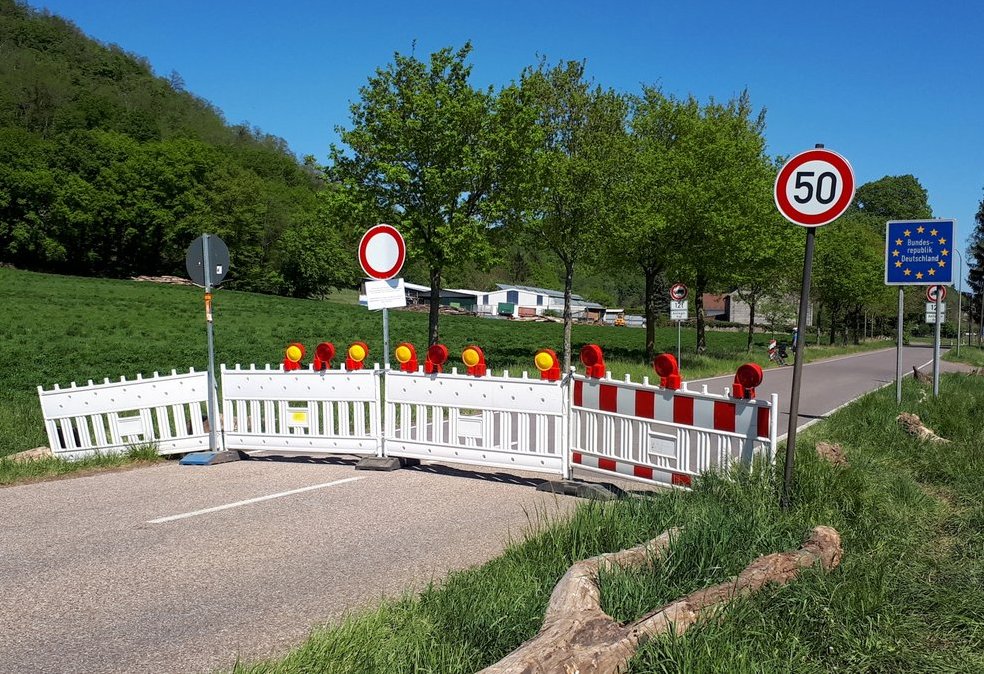Virtual roundtable – Border realities in the Greater Region in times of the pandemic
Just a few weeks ago, open borders were a matter of course in the Greater Region: commuters, students, supermarket customers – everyone could cross the border without controls. As security measures in the wave of the COVID 19 pandemic, border controls were introduced in mid-March and many border crossings were closed. The cross-border realities of everyday life of the citizens of the Greater Region were cut. The border closures caused criticism and misunderstandings at various levels, which put in particular Franco-German cooperation to the test.
These and other events in the wave of the COVID 19 pandemic gave rise to the online roundtable discussion on 28 May 2020, which was organized with the support of the University of the Greater Region as part of the conference series "Border Realities: Challenges and Perspectives in Uncertain Times". Together with almost 100 participants from civil society, cross-border cooperation, administration and students, the experts discussed the current everyday realities, citizens initiatives, dynamics of concertation and the future of cross-border cooperation. Among the invited experts were:
- Patrick Barthel, Vice President of the University of Lorraine for German-French relations and Director of the German-French Center of Lorraine (CFALor)
- Martina Kneip, Co-initiator of the initiative “Schengen is alive” and Director of the European Centre Schengen
- Philipp Krämer, Deputy professorship in linguistics (European University Viadrina, Frankfurt / Oder, Viadrina-Center B/ORDERS IN MOTION)
- Florian Weber, Assistant Professor of European Studies with a focus on Western Europe and Border Regions (Saarland University, UniGR-Center for Border Studies)
- Astrid M. Fellner, Professor of North American Literary and Cultural Studies (Saarland University, UniGR-Center for Border Studies)
- Christian Wille, Border scholar and Director of the network UniGR-Center for Border Studies (University of Luxembourg)
Initiatives in times of pandemic: setting an example together
The initiative "Schengen is alive", which was co-initiated by Martina Kneip, arose even before the Corona pandemic and refers to the open EU internal borders as a European achievement worthy of protection. The initiative aims to promote the free movement of persons, goods and ideas within the Schengen area. In the current situation, it was further developed into the project "Keep Schengen alive", which was initially carried out with the support of mayors from border communities andwas then mainly supported by citizens in the Luxembourg-German border area. Other citizens' initiatives were presented, such as the creation of a Facebook group with over 11,000 members or the video message of Saarland mayors to their partner communities in France.
German-French relations: resentment and communication
In addition, the resentment that arose between Germans and French in Saarland and Grand Est, which was widely discussed in the media and considered almost impossible, was discussed. Forward-looking, Florian Weber noted in this context that it depends on personal experience how the attitude of citizens towards their neighbors changes. Furthermore, the role of political actors was emphasized in order to re-establish cross-border trust and strengthen the Franco-German friendship. This seemed all the more important in view of the lack of coordination processes during the border closures in March, as Patrick Barthel noted: Border management stood for a strategy of "every man for himself" as a "best solution to contain the virus" at this time. Weaknesses were also discovered in joint crisis communication, which should be avoided in future. Philipp Krämer, for example, reported on various initiatives, but noted a nationally limited reach in the border region, as well as a lack of addressing citizens.
Perspective: cooperation in the Greater Region
In conclusion, the experts noted that despite all the criticism and far-reaching experience, the current situation has given significant impetus to intensify cooperative relationships and to rethink established routines of cooperation. Furthermore, an active handling of the ailing Franco-German relations was necessary, which was to be achieved through regained trust, joint political and communicative action and the promotion of multilingualism. Furthermore, the importance of border (region) research was pointed out, which should not only deal with the current effects of the pandemic, but also present proposals for the future intensification of cross-border cooperation.

Presse
Die Grenzschließung und das Gefühl der Abweisung, in: Trierischer Volksfreund (08/06/2020). More information
Grenzwirklichkeiten in der Großregion, in: SR 2, Der Morgen (29/05/2020). More information
Grenzregion zwischen Enttäuschung und Zuversicht, in: Saarbrücker Zeitung (29/05/2020). More information
Video recording
Contact


